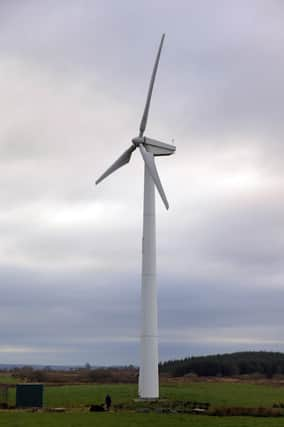Planning policy proposals for renewables – Merely tweaking the status quo


He also stated that NI agriculture is best placed to do this, with small scale renewables becoming an integral part of many farm businesses going forward, ensuring that money generated stays in the local economy.
Professor Rooney envisages that small scale renewables could provide a complementary side occupation for farmers, meaning that conventional farming could work alongside our sector becoming a significant low carbon energy provider meeting NI’s energy needs in the future. This would be driven by the adoption of new renewable technologies adding value to the perceived ‘waste streams’ generated by the industry at the present time. Crucially, this can be achieved in ways that will not increase competition for land at farm level.
Advertisement
Advertisement
The UFU have repeatedly cited numerous barriers to the uptake of small-scale renewable energy, with one recurring obstacle being planning policy in NI. In February 2022, in response to an issues paper ‘Review of Strategic Planning Policy on Renewable and Low Carbon Energy’, we set out our concerns regarding planning issues faced by our members and what we would like to see in terms of a revised planning policy.
We were optimistic that there was going to be an opportunity to address this when in April 2023, the Department for Infrastructure (DfI) launched their consultation ‘Strategic Environmental Assessment of the draft revised Regional Strategic Planning Policy on Renewable and Low Carbon Energy (R&LCE)’.
The consultation which closed on 30 June, represented a once-in-a-generation policy opportunity to change the planning process. Unfortunately, and frustratingly, it appears that the DfI have missed an open goaWhat is proposed in the consultation falls short of the facilitative planning system needed to realise the renewable targets which are being asked of us, reflecting a lack of desire to tackle overarching policy structure and a failure to tackle concerns regarding timescales for planning decisions which has caused the most concern. The fear now is that it may do more harm than good as we approach 2030 and the renewable energy targets we are facing. Concerningly it will restrict both current and future development of small scale renewables development across NI.
Our response to the consultation highlighted our concerns to what was proposed; spurious weighting for renewables; set back distances; solar farms and previously developed land and concerns regarding the spatial planning approach.
Advertisement
Advertisement
We also highlighted on-going unacceptable backlogs at every stage of the planning system. There is 85MW of renewable electricity currently held up in planning for more than three years, which is enough to power up to 85,000 homes. In our response, we suggested strict time limits should be introduced for statutory bodies to respond to the planning application.
However, in terms of what we proposed in our response it was the establishment of a Planning Regulator in NI which is clear. In the Republic of Ireland, they have the Office of the Planning Regulator (OPR). Its role is to ensure that local authorities support and implement government planning policy. What this means is that the OPR can intervene where a council has attempted to introduce set-back distances (for example) which would severely restrict wind farm development and are deemed to be inconsistent with government policy. These are differing powers to the current appeals system.
To ensure that future renewable energy targets are met in NI, such interventions should be an option.
To meet the highly ambitious target of 80% of energy from renewable sources, we will need to double our current capacity of 1.8GW to meet the electrification of heat and transport. Small scale renewables produced by the land-based sector will add value to the NI economy and this is backed by forecasts which tell us that achieving the 2030 target will bring over £5 billion GVA to the NI economy and create 2,000 jobs, as well as reducing carbon emissions from the electricity sector by 75%.
Advertisement
Advertisement
The Northern Ireland Environment Agency’s decision last month to stall on-farm planning applications coupled with these inflexible proposals within this draft, will place the further development of small scale renewables in NI in jeopardy.
This consultation presented an opportunity to change the planning system which, in its current form, is holding back the uptake of small scale renewables. Instead, it is merely tweaking the status quo